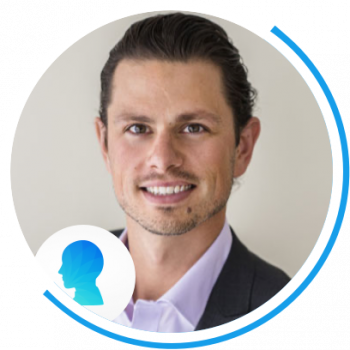Practical Steps for Healing Trauma: Expert Insights from Dr. Farah Jindani on Choice, Community, and Transformation
Oct 29, 2023
Unlock transformative insights into healing trauma and building resilience with tailored approaches, actionable steps, and community support.
In the ever-evolving fields of mindfulness and mental well-being, the topic of trauma frequently surfaces as a core issue to address. At a recent Mindful Society Global Institute learning event on “How to Transform Trauma,” we had the honour of hosting Dr. Farah Jindani, a seasoned therapist and trauma expert, to share insights on transforming trauma and fostering resilience. Here's what we learned:
The Importance of Choice and Personalization in Trauma Recovery
Choice, or the lack thereof, often lies at the heart of traumatic experiences. Dr. Jindani emphasized the crucial role of reintroducing choice to people who have suffered trauma. "To give choice back to somebody and offer almost like a menu of different options is imperative," she noted. This aligns with our Institute's focus on providing a variety of tools and techniques to facilitate well-being.
Also, it is essential to meet people where they are, tailoring your approach to their capacity, interests, and cultural upbringing and with an understanding of their lived experience. For those who have experienced systemic or intergenerational trauma, offer resources that go beyond resilience-building and acknowledge that their healing journey is directly linked to the transformation of the systems connected to their suffering.
Practical Steps to Transform Trauma and Build Resilience
Here are some actionable insights for people in helping professions and those seeking to advance healing in their lives:
- Body-Based Practices: In states where you are noticing high arousal or a “fight or flight” stress response, introduce simple grounding exercises like "foot on the floor" or "hand on the heart" to connect people with their physical selves and begin the gradual shift of the autonomic nervous system to “rest and digest.”
- Mindfulness Activities: Longer meditation sessions may be very challenging at the beginning stages of the healing journey; experiment with mindful movement practices at first and then expand to brief 1-3 minute mindful breathing exercises, if these are accessible.
- Simple Creative Outlets: Encourage moments of creative expression through journaling, doodling, or listening to music and even body movement with music as alternative pathways to healing.
- Nature Engagement: Activities like "forest bathing" or simple outdoor walks can be therapeutic. If access to nature is unavailable, offer virtual nature experiences for those who can't go outside.
- Social Support: Building a community around resilience can have a powerful multiplier effect. Consider peer-led groups or workshops where people can share what has helped them.
- Feedback Loops: Periodically ask for feedback on what's working and what isn't. People's needs change as they progress in their healing journey.
- Progressive Challenges: For those who are ready, introduce more advanced practices like long-form meditation, but always with an option to scale back or drop the practices at any time.
- Resource Lists: Offer a curated list of readings, videos, podcasts, and other resources and professional support that people can choose from based on their interests and comfort level.
Building Resilience Through Community and Iterative Feedback
For those interested in connecting with group settings, building a community of support is invaluable. Peer-led groups or workshops can create an environment where sharing becomes a tool for collective growth. Also, be sure to solicit feedback periodically to adapt your approaches to the evolving needs of your community.
The Role of Personal Experience in Healing
Dr. Jindani’s journey is a testament to the power of integrated approaches to healing, incorporating both her personal and professional experiences. "I'm a strong believer that we can take people as far as we've gone ourselves," she says. She often shares her journey in engaging in “talk therapy” and how she found herself searching for something beyond conventional approaches and being drawn to integrative methods, such as kundalini yoga, which involves a blend of physical activity, breath practice, and meditation.
Key Takeaways
- Empower Choice: Offering a menu of options for healing empowers individuals to reclaim control of their recovery journey.
- Meet People Where They Are: Adapt your approach based on individual needs to create a genuinely inclusive healing space.
- Start Small: Quick and straightforward practices can significantly impact and pave the way for more advanced techniques as people become more comfortable.
- Lean on Community: Peer-led groups and regular feedback loops can amplify the effectiveness of your initiatives.
Our conversation with Dr. Jindani reinforces the importance of a multi-faceted approach to healing trauma and fostering resilience. In integrating these insights into our work at the Mindful Society Global Institute, we hope to provide even more robust support to our community of professionals, including mindfulness facilitators, in their quest to make a meaningful impact.
 Farah Jindani, Ph.D., is a clinician, educator, and researcher. She's renowned for her groundbreaking work at the Centre for Addiction and Mental Health and with Harvard University in integrative treatments, particularly using Kundalini yoga to address post-traumatic stress.
Farah Jindani, Ph.D., is a clinician, educator, and researcher. She's renowned for her groundbreaking work at the Centre for Addiction and Mental Health and with Harvard University in integrative treatments, particularly using Kundalini yoga to address post-traumatic stress.

Michael Apollo MHSc RP is the founder of the Mindful Society Global Institute. Prior to founding MSGI in 2014, he was the Program Director of Mindfulness at the University of Toronto. He is an educator, licensed mental health clinician and certified facilitator in Mindfulness-Based Stress Reduction and Mindfulness-Based Cognitive Therapy.
Disclaimer
The content in our blogs is not intended to substitute for professional medical advice, diagnosis, or treatment. Always seek the advice of your health provider with any questions you may have regarding your mental health.
Join our weekly newsletter for insightful articles and free events
Be the first to learn about upcoming FREE events, receive early bird pricing for courses and stay in touch with weekly newsletters!



